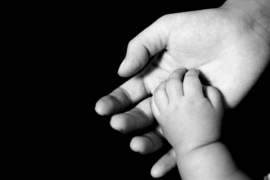
Make Sure You Understand The Permanency of Guardianship

Unlike adoption, a legal guardianship is not considered a permanent arrangement. The legal guardian provides the court with a guardianship bond in order to receive guardianship rights over a person and their estate. This guardianship bond will be for the amount of the assets that are possessed by the minor or disabled adult for whom the guardianship is established.
This guardianship bond ensures that the guardian will adequately perform all of their responsibilities and that the guardian will not take advantage of their power over or access to their ward's assets. Without this bond, a petitioner cannot receive guardianship rights over another individual.
Once a petitioner completes the necessary paperwork, provides the court with a guardianship bond, and receives authorization from a judge, the petitioner will receive all of the guardianship rights and responsibilities to the ward. The guardian will be required to uphold these rights and responsibilities until the guardianship is legally absolved. There are many conditions that can terminate an individual's guardianship rights over a ward and end a legal guardianship.
If an individual feels that a child's current legal guardian is not providing the child with adequate care, or is neglectful or abusive, then that individual can choose to file a petition to receive guardianship of the child. The case will be brought in front of a judge and the judge will review the evidence presented during the case. If the judge feels that it is no longer in the child's best interest to remain in the care of their current guardian, then the guardian will lose their guardianship rights and the child will be placed in the care of a more appropriate guardian.
A child over the age of fourteen may also decide to petition the court to be removed from the guardianship of their current legal guardian. Likewise, the current legal guardian may choose to relinquish guardianship rights and forfeit their role as the child's legal guardian. In cases such as this, the court will find a new guardian for the child.
If the child is adopted and moved into a permanent arrangement, then the individual who was appointed the legal guardian of the child will no longer be considered the child's guardian and will lose the rights and the responsibilities that they had assumed when they were appointed the child's guardian. If the judge feels that the parents of the child have become capable of properly caring for the child, then the judge may decide to have the child returned to the care of his/her parents.
Once a minor reaches the age of majority, which in most states is at the age of eighteen, then the minor becomes an adult and no longer requires a legal guardian. The legal guardian will lose their guardianship rights when the child they were caring for reaches the age of majority.
If a minor receives consent from their legal guardian to enter into a marriage, then the individual who had been appointed as the child's guardian is no longer considered the child's legal guardian due to child emancipation laws. If either the child or the guardian dies, then the guardianship is automatically terminated. If any of these situations occurs, the guardianship bond becomes void.
NEXT: Make Sure You Understand The Processing Period




















